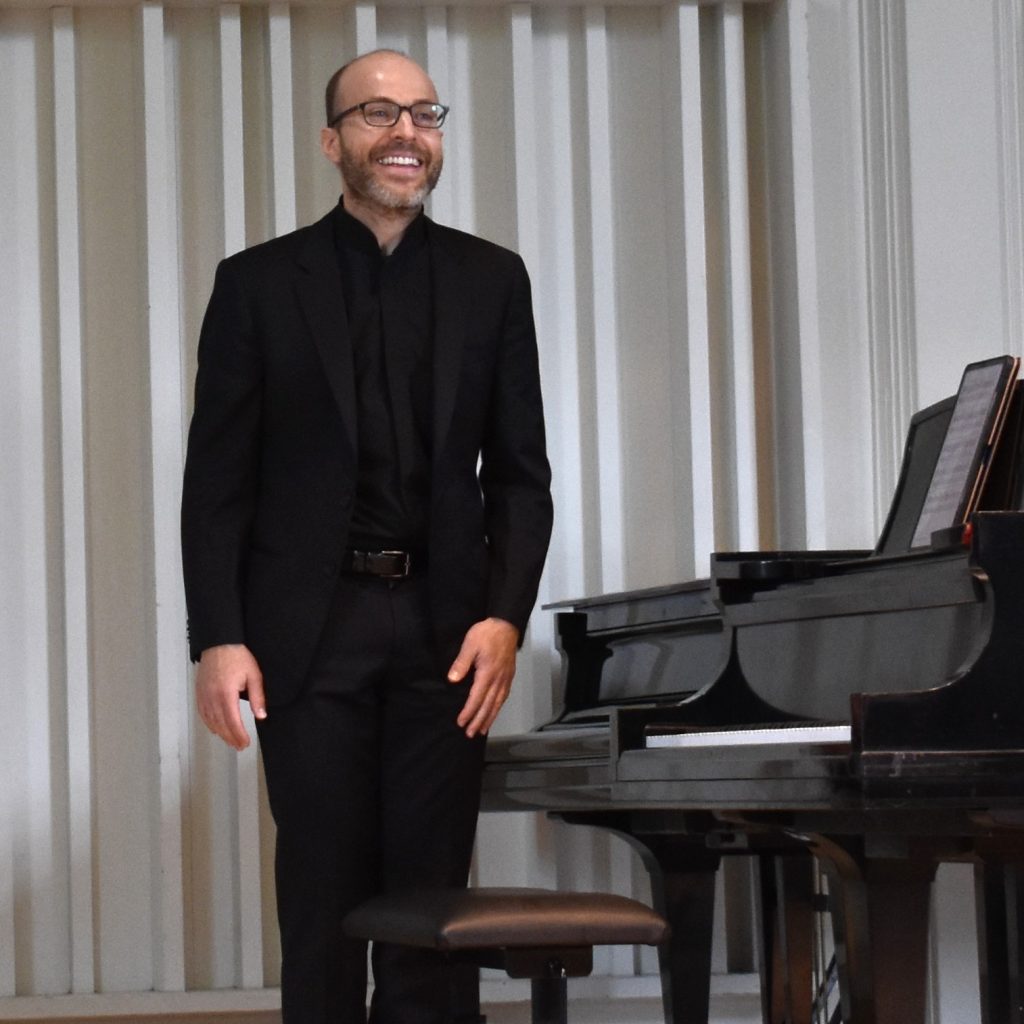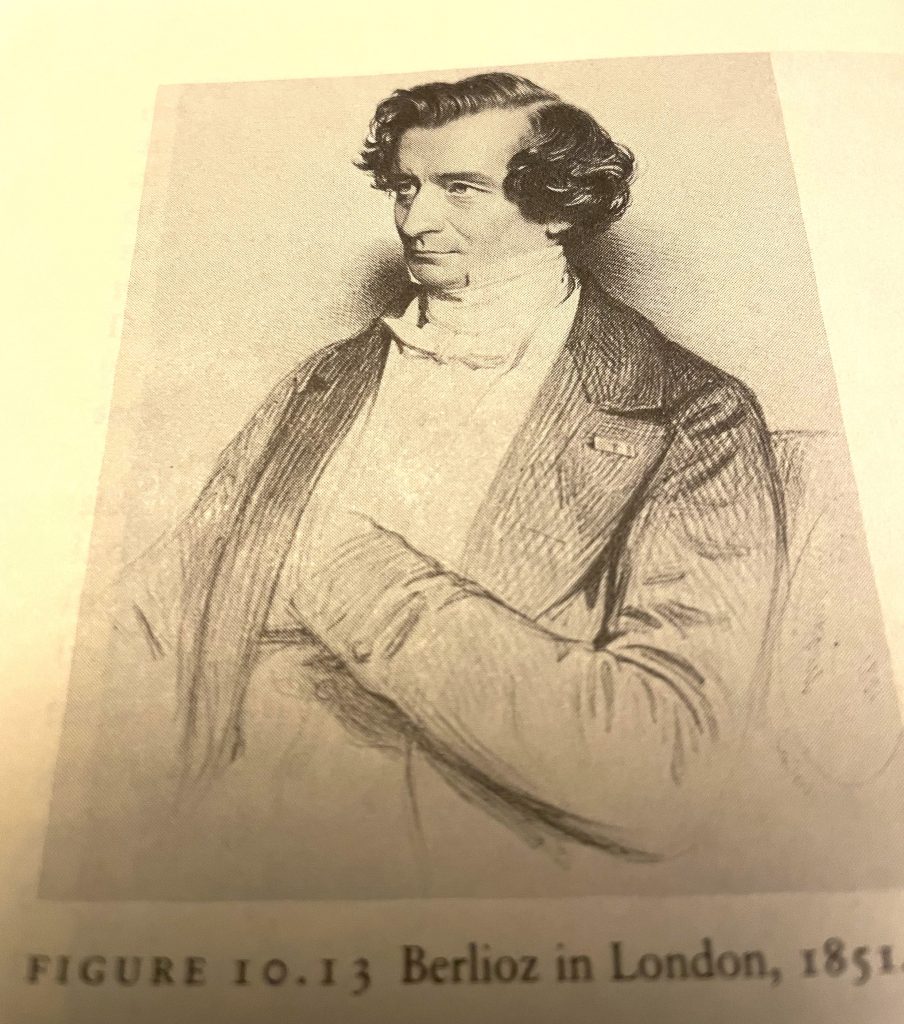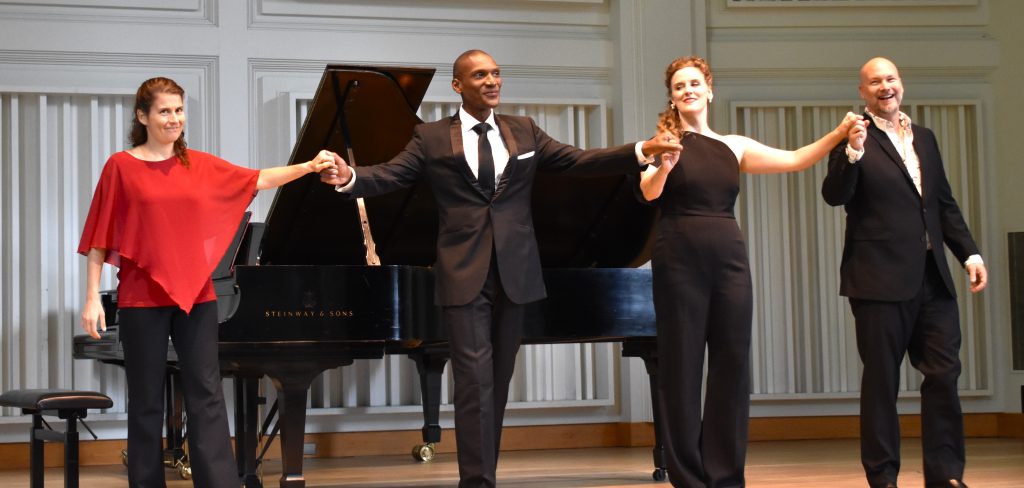
by Kevin T McEneaney
Saturday afternoon in Olin Hall at Bard College song hovered sweetly in the concert hall, the theme being the Romantic movement and lyric song. Paris was the birth node of the Romantic movement, especially artistic gatherings of musicians and writers in parlor rooms. Chateaubriand, George Sand, Baudelaire, Lamartine, Nerval, Mousset, Delacroix, Chopin, Liszt, and Berlioz might be discovered in the same parlor room. Others like Rossini and Heine might also drop in from time to time. (The parlor room gathering was the method for expanding the Romantic movement throughout Europe.)
Heinrich Heine’s famous “Schwanenlied” (c. 1837) sung by Soprano Jana McIntyre with Anna Polansky at piano opened the program with an eloquent song that poured forth like an uncorked, old bottle of wine. Jana sang with arresting elegance and the swan swam into our hearts.
Orion Weiss at the piano played three works: “Prelude in C-sharp Minor,” Op. 81, No. 10” (1853) by the Hungarian Stephen Heller. who was not only a prolific composer of music for piano, but also wrote about 300 songs. This piece was smoothly elegant and sophisticated, the kind of sound that warmly welcomes people into the ambiance of intimacy.
“Pasquinade, “Op. 59 (1869) by Louis Gottschalk, the New Orleans pianist who left America for the Paris Conservatory when he was thirteen. Chopin once prophesied that Louis would become the king of pianists. The jaunty, satiric rhythm had a hint of the author of “Bamboula,” yet this short piece was perhaps his last noted composition before he died in Rio de Janeiro that same year; this piece, so light and airy, sounded like the origin of ragtime.
“Zur Guitarre,” Op. 97 (1861) by Ferdinand Hiller, the teacher of Max Bruch, and a man who played a prominent leading role in German music, composing in nearly all genres of music; this piece, being an extroverted, jaunty cabaret work that stamped a smile on everyone in the audience.

Since the topic of this concert was “Literary Romantics,” six poems by Theophile Gautier, the man who coined the “art for art’s sake” movement, set to music by Berlioz were performed. Tenor Noah Stewart sang “Villanelle,’ a charming song of romance linked to a Spring gathering of berries in the woods, singing with vibrant passion; he performed “Au cimitière: Claire de lune” of a cemetery at midnight during an era when people rarely lived beyond forty years of age.
Mezzo-soprano Rebecca Ringle Kamarei sang “La spectre de la rose” which depicted the plight of a woman who wore a dying rose on her breast while mourning her husband; “Absence” depicted the gloom of a night when a woman missed her beloved; “L’ile inconnue: barcarolle” portrayed the quest for an imaginary island in an afterlife. Rebecca sang with deep, searching, plangent emotion.
Baritone Tyler Duncan “Sur les lagunes: lamento” described a visit to a cemetery with somber ghosts flitting about, his tone evoking the simmering embers of hell, as he imparted a deep nightmare shiver to all!

The second part of the concert opened with Andante and Variations, Op. 46 (1843) by Robert Schumann. This was an unusual quintet with Orion Weiss and Piers Lane on pianos, Kee-Hyun Kim and Russell Houston on cellos, and Eric Reed on horn. This was an extremely eccentric work, perhaps illustrating Romantic experimentalism featuring a horn. I admit that the work had its moments, about four of them, yet I did not comprehend how the work cohered as a whole.

Last, but not least, was String Quintet No. 2 in B-flat Major, Op. 87 (1845) by the young Felix Mendelssohn, yet not published until after his death. The was performed by the Balourdet Quartet with the addition of violist Luosha Fang. This early work is both classical and romantic: it offers a more personal, Romantic depiction of the four seasons than the Baroque depiction by Vivaldi, which is more extroverted and sociological than the more intimate family painting by young Felix.
Like Vivaldi, the composition opens with Winter as the high-pitched first violin of Angela Bae conveyed the sound of icy snowflakes and freezing icicles. The Spring movement delights in the pleasures of those burgeoning buds of vegetation with pizzicato portraying light, pleasurable rain. The slow longueurs of Summer in the Lento with the abundance of food and sunlight follow with mellow strings as Fang’s viola grew eloquent. The cheerful cool of early Autumn began to bleed into wistful melancholy cheered by cider as the Quintet played with passionate and exciting bravura!
